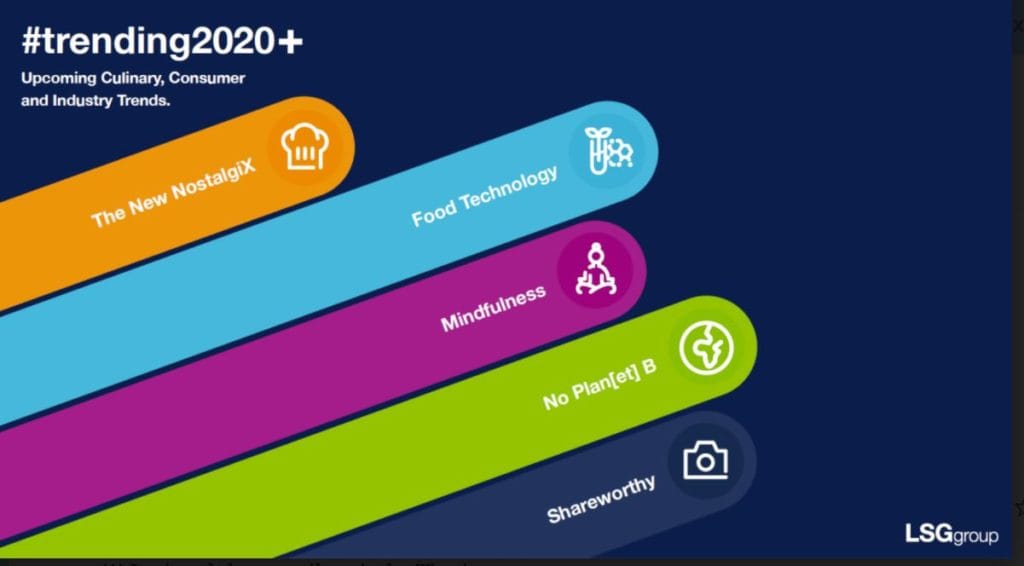How COVID-19 Is Influencing Food Trends on the Ground and in the Air
Share

Like other sectors of the food service trade, the airline catering industry keeps an eye on food and beverage trends around the world. This year, the COVID-19 pandemic is having a big impact on those trends.
LSG Group, which issued its annual report on food trends for 2020 back in January, had its experts go back and use new market and consumer data to look at those trends through a COVID-19 lens.
Their conclusion: Of the 16 trends the original report identified, half remain unchanged, seven have become more prominent and one – the trend to reduce waste and rethink packaging and materials – has temporarily lost momentum.
As part of what LSG terms the ‘New NostaligiX”, during the crisis people have been both cooking well-known recipes that give them comfort and experimenting with traditional recipes to create new combinations with different flavors.
Food technology and its uses have also been affected. The “digital food” trend, which includes new strategies for food delivery in airports, has become more important. In addition to a sharp increase in demand for food delivery services, LSG sees new emphasis on Click & Collect and the rise of ghost kitchens around the world.
While airlines have been reducing complimentary meal services due to the pandemic, “people generally remain just as hungry when flying,” noted a spokesperson for LSG. “This is where digital onboard (retail) programs show their strengths. They help to reduce touchpoints for both passengers and crew and make everything more convenient but also easier and safer.”
The trend of ‘mindfulness’ and food has also taken on new importance. “Being able to identify the ingredients is now more important due to health reasons and sustainability,” the spokesperson noted. “There’s a growing interest in products that are rich in vitamins, nutrients and other products to boost the immune systems.” But, the spokesperson noted, people also continue to find solace in treating themselves with comfort food.
When it comes to the “Rethink Materials” trend, LSG notes that COVID-19 temporarily dampened what had been a strong drive for sustainability and increased the demand for packaged food and food safety. While hygienic packaging and production processes became a priority early on, as COVID-19 developed into a long-term problem, the issue of sustainability quickly rebounded.


